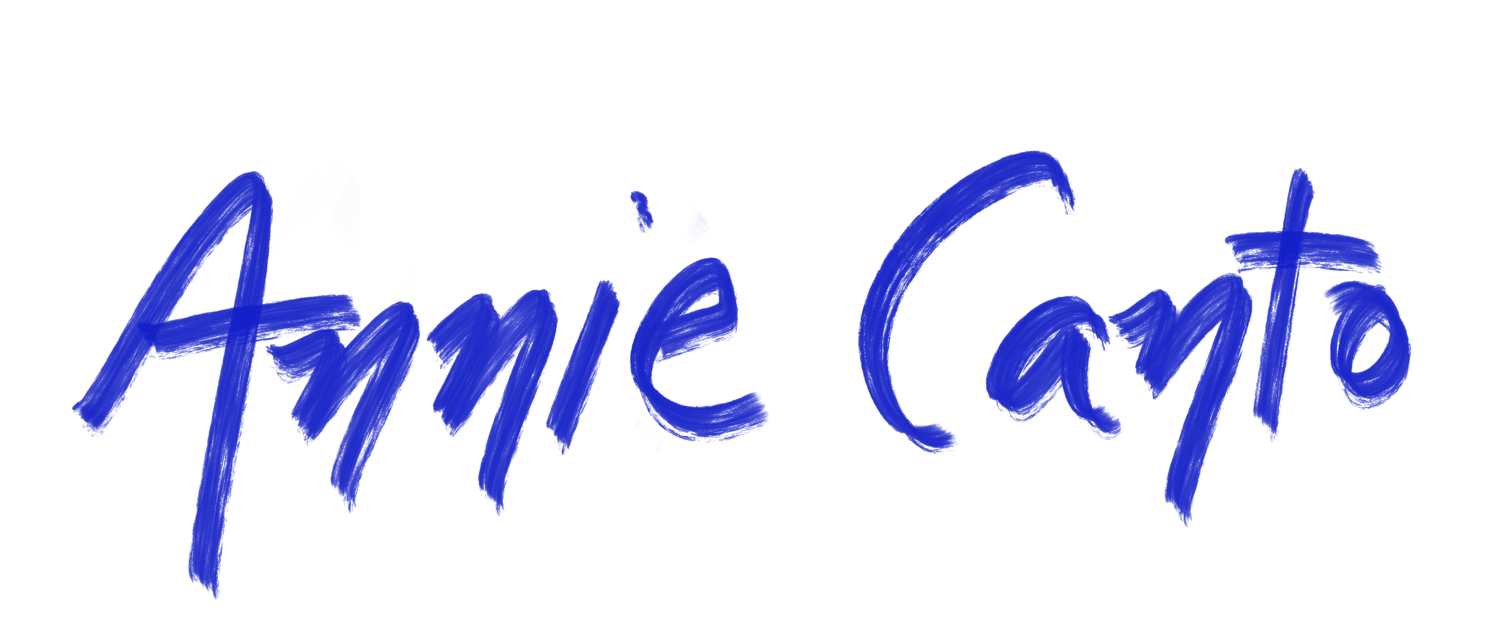My Beautiful Laundry
No it's not a prank. Well perhaps it is, but it’s the kind of hijinks that has a heart full of love and a head full of critical theory, and it does what all good jokes do; points us towards something that is true. Annie Canto’s mischievous installation of a fictionalized laundromat in ODD Gallery, makes us think about the socio-historical factors shaping and influencing the relationship between ourselves, others and the places we inhabit together. This space, activated in collaboration with community-based artist, Jasmina Majcenic, combines function and fun to open up the possibilities of laundry as a site of unexpected connection. Yes, it is a nostalgic re-staging of a fictitious laundromat that’s untouched by the winds of time, but it’s also a functioning event space with food, music, and making; where you can actually go and wash your clothes.
Like with many of Canto’s other projects, this installation foregrounds the adjacent specificities of a particular place, and takes as its cues from the Dawson City community who has long been creative about how to use and inhabit multipurpose spaces. Combined with Majcenic’s reflections on laundry as a place for dreaming, the two come together to activate the collective imagination of their communities using laundry as a transformative and everyday site for meaningful exchange.
Their laundromat, then, is not only replicating the cheerfully mismatched signage and beautifully unintentional furniture of classic laundromats but also taking up the idiosyncratically Dawson attitude of competent DIY-ness that is used to fill particular and functional needs within the city.
By jamming a laundromat into an artist-run centre, expectations are defamiliarized around the nature and function of both places. This irreverent blending of two disparate-seeming spaces takes away our ability to rely on the assumptions we have for how public spaces are meant to be used, and by whom.
The way we locate ourselves, or are located, in physical spaces is indivisible from the larger political and historical conversations widening or constricting the ideological space there is for us in public, social and civic life.
No space is ever neutral and neither is our socially constructed understanding of what activities can be deemed to have, or lack, artistic status. Having a working laundromat in the gallery reframes the function of the gallery away from being restricted to the singular task of art, with a capital A, and instead, opens it up to becoming a site for fractaling out a new range of possibilities for how we can be together, in-situ.
written by Nura Ali






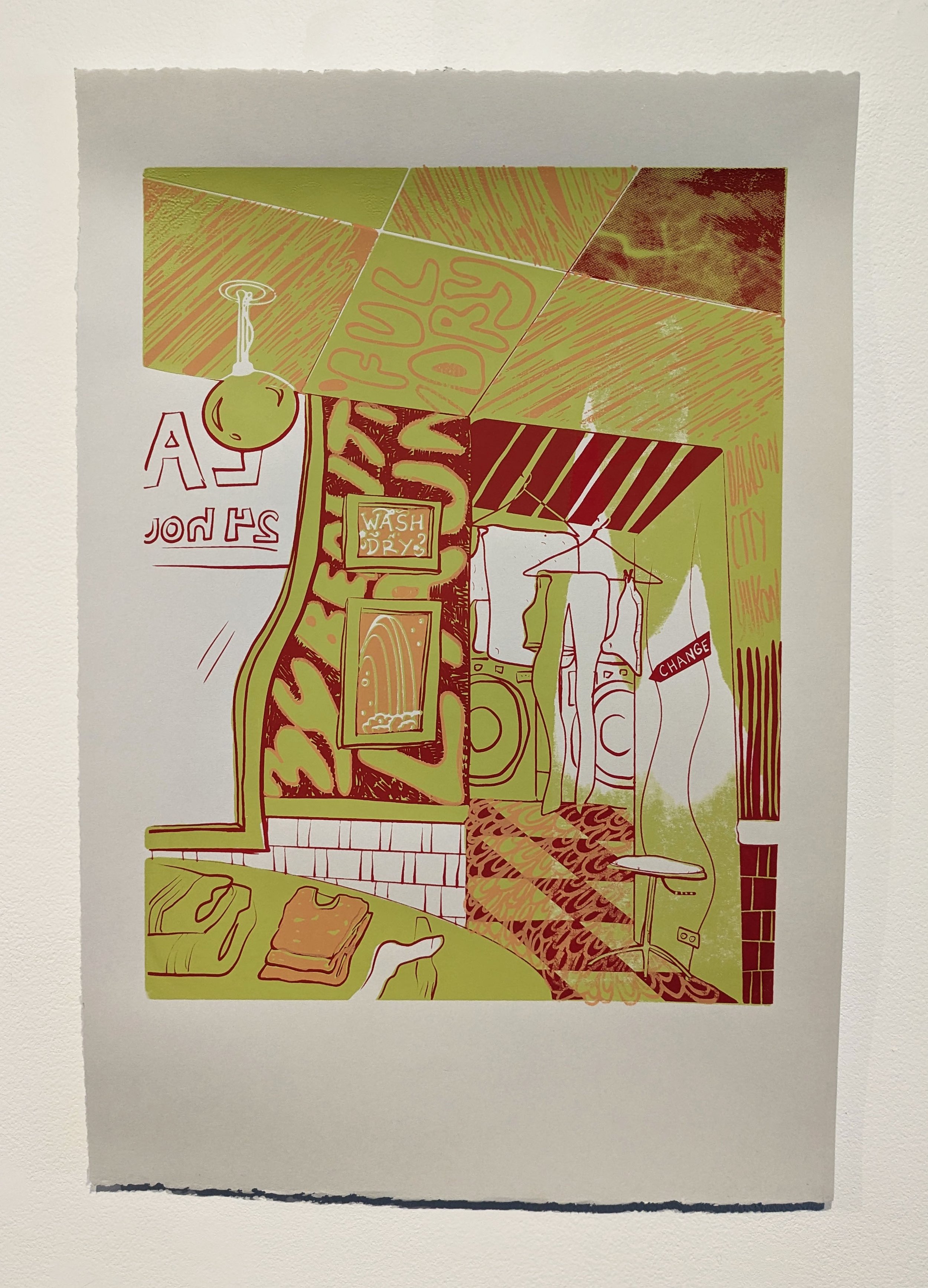

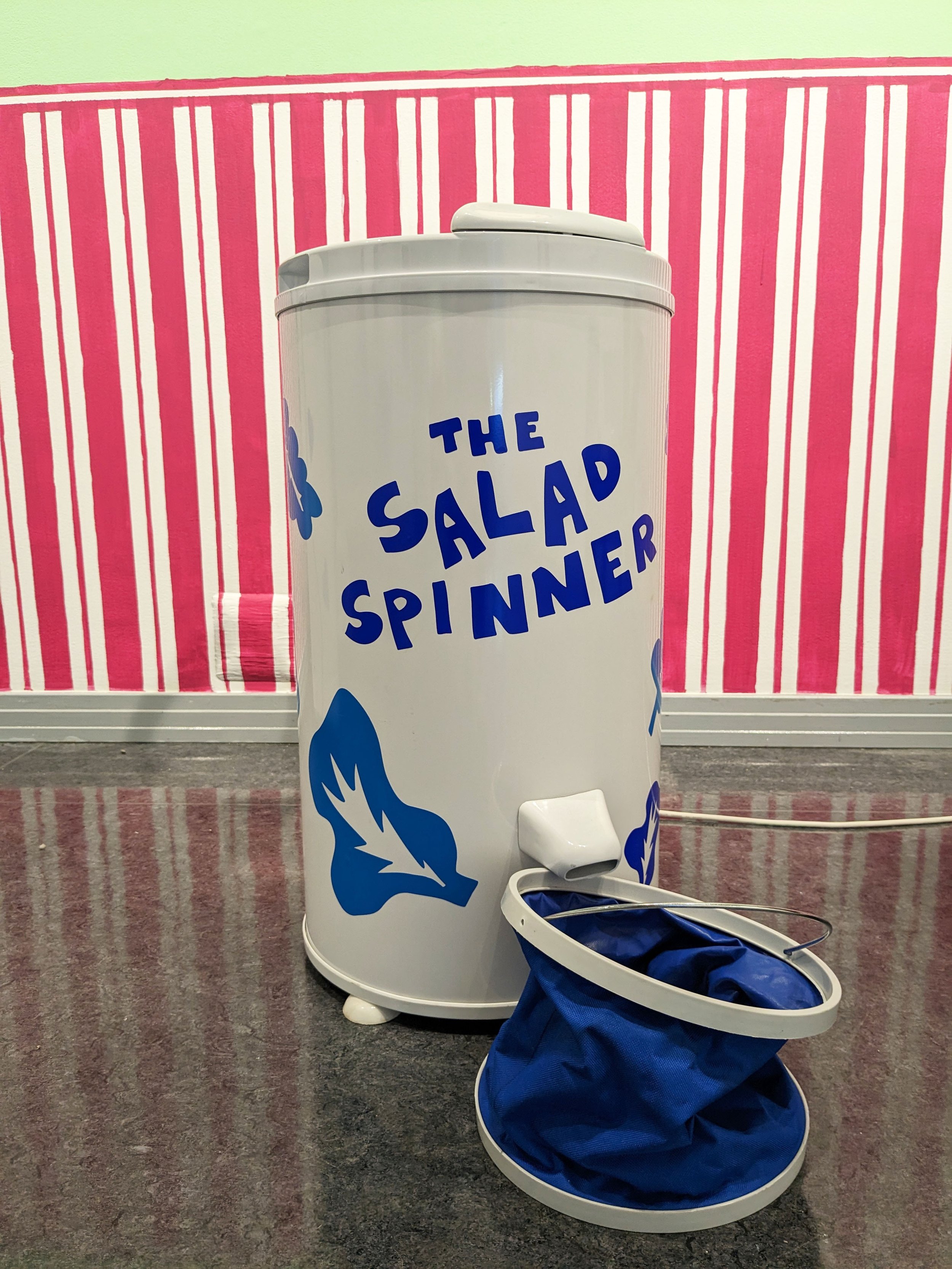
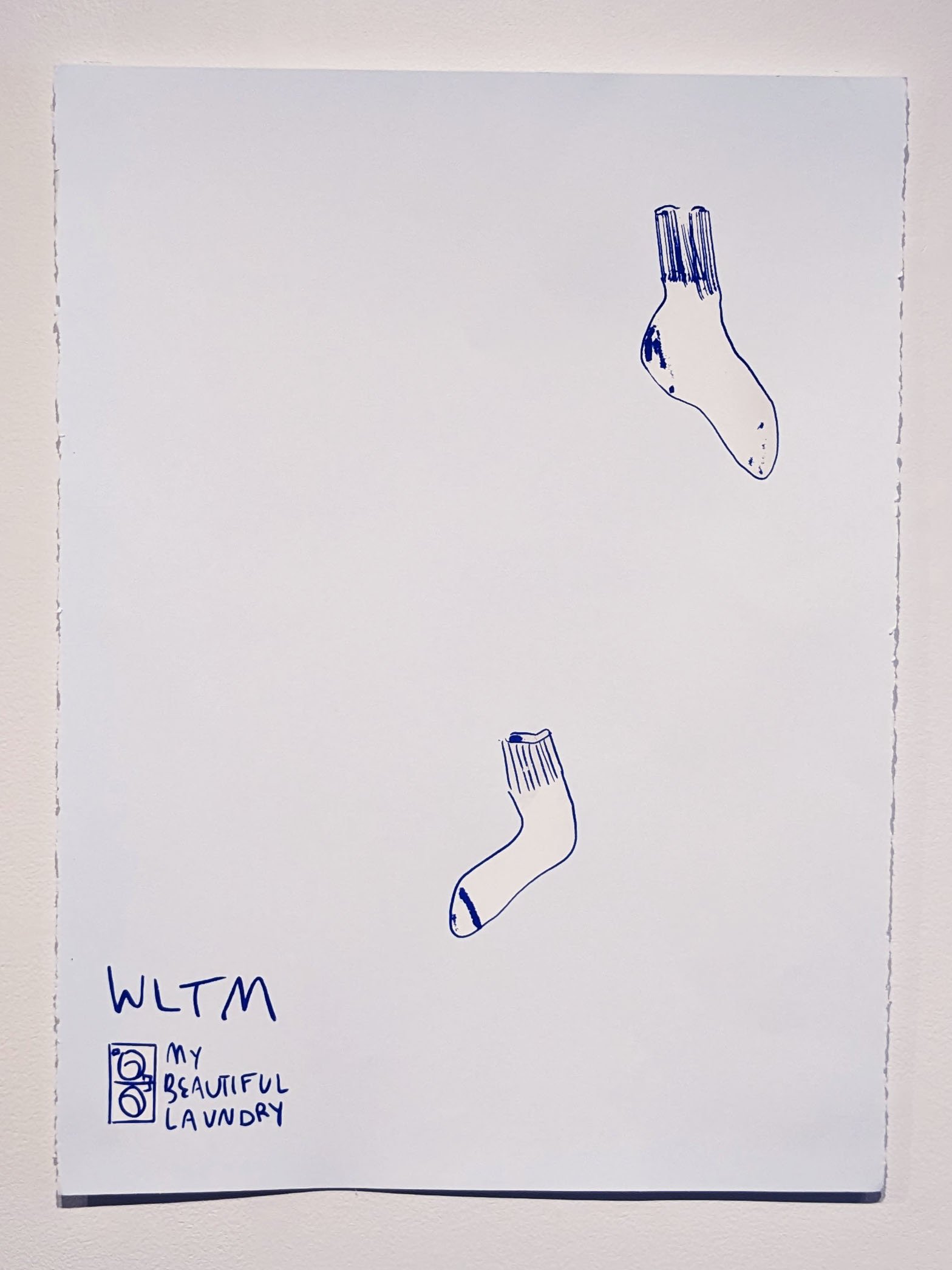
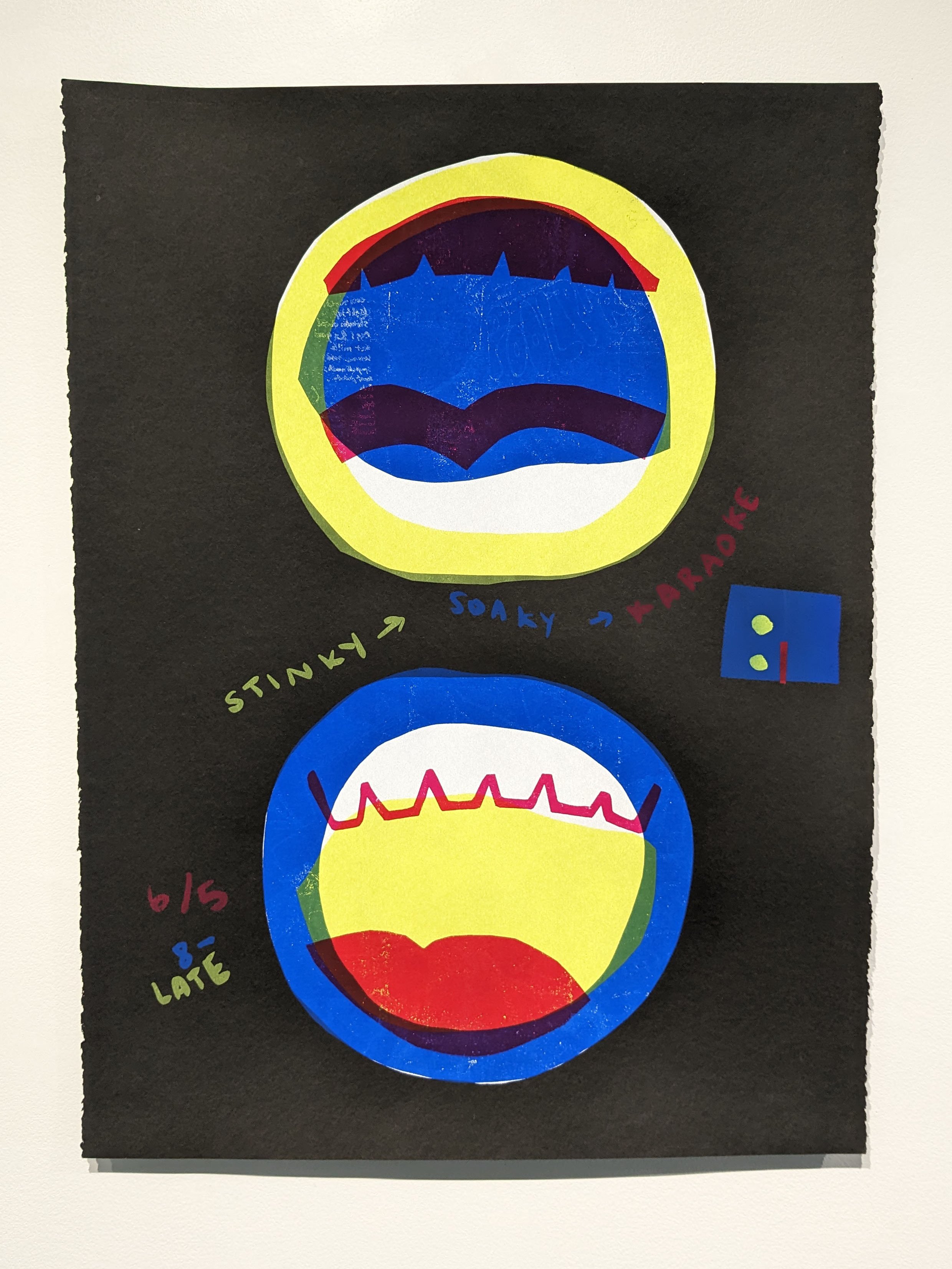




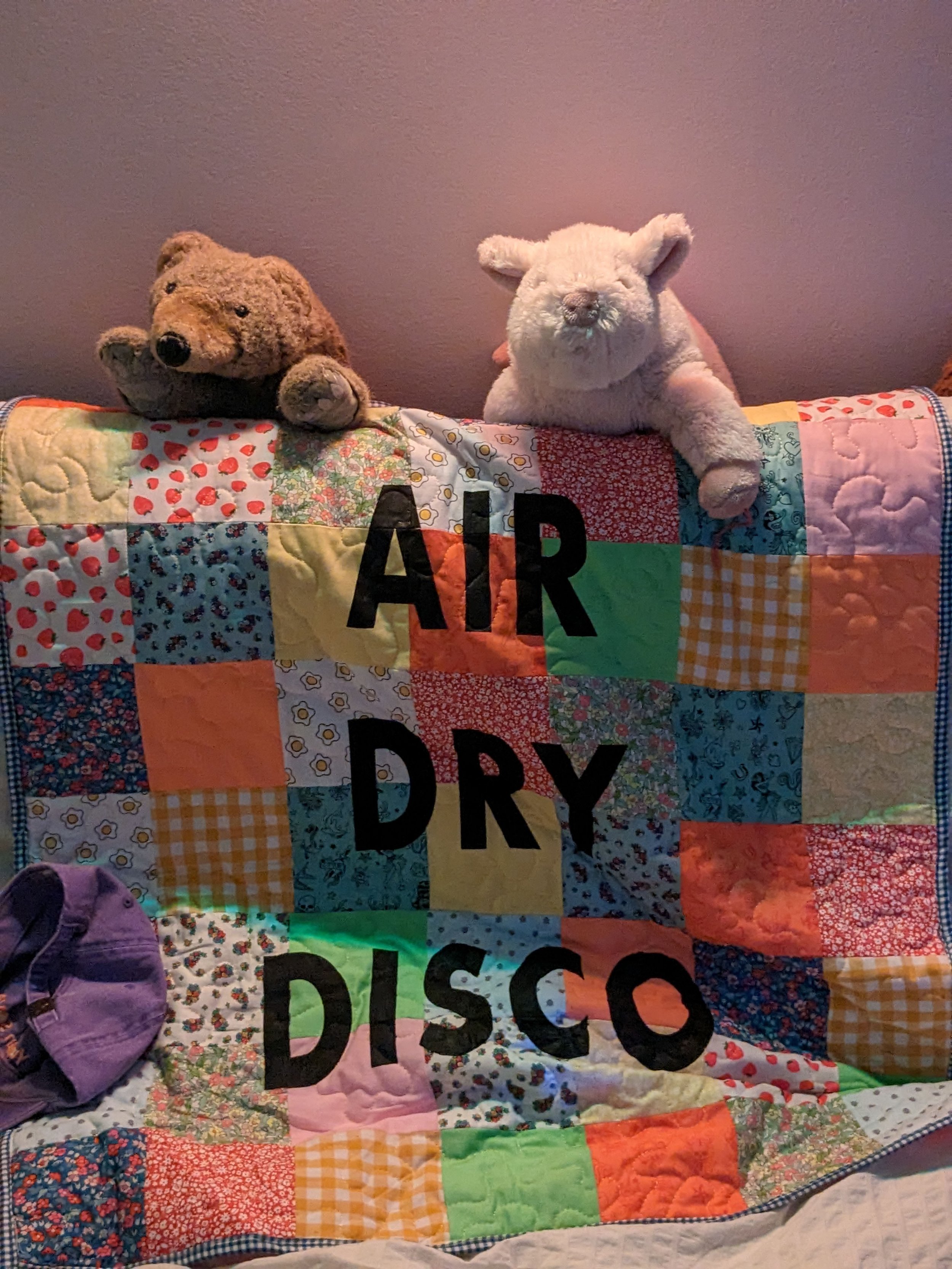
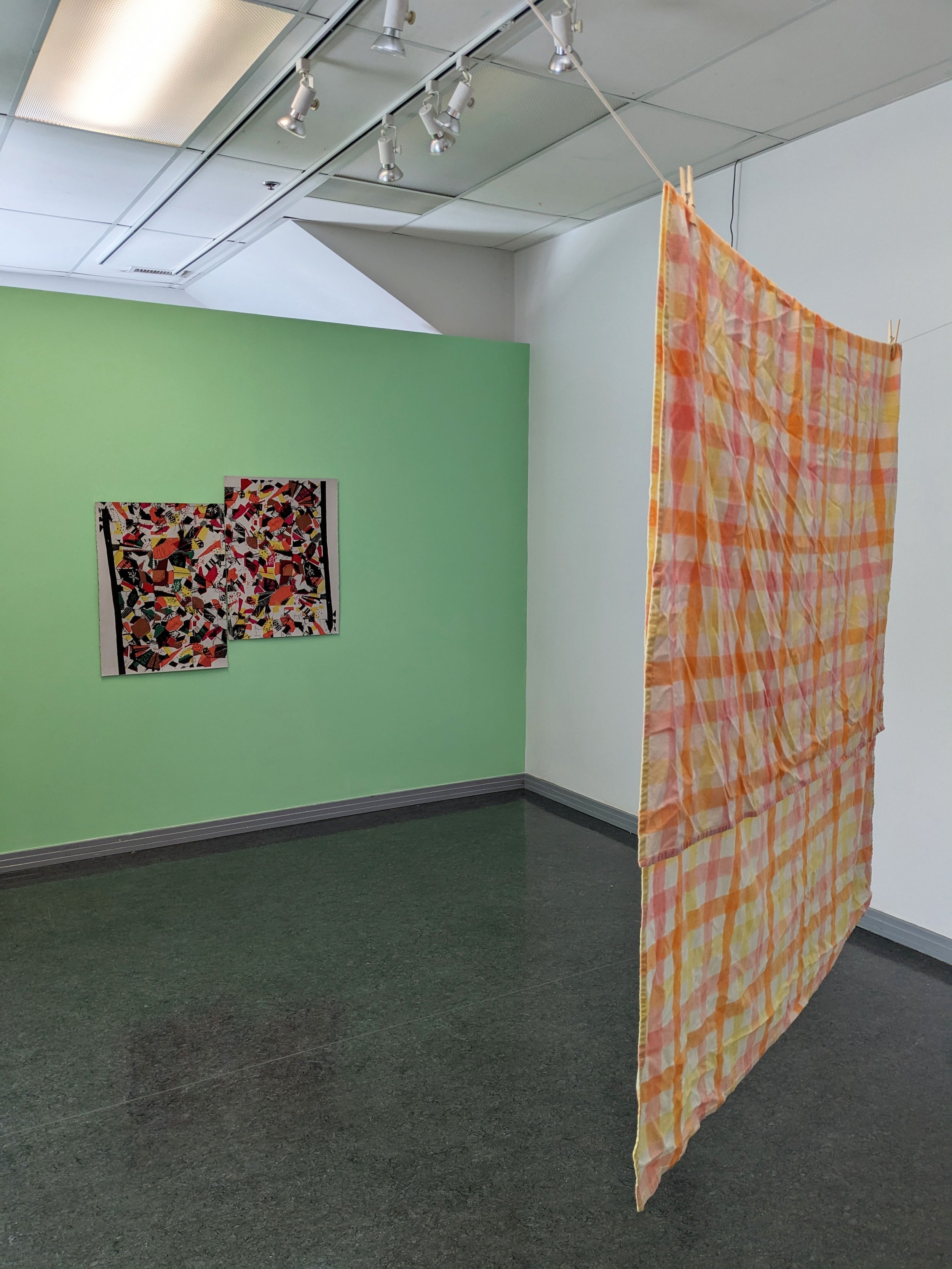
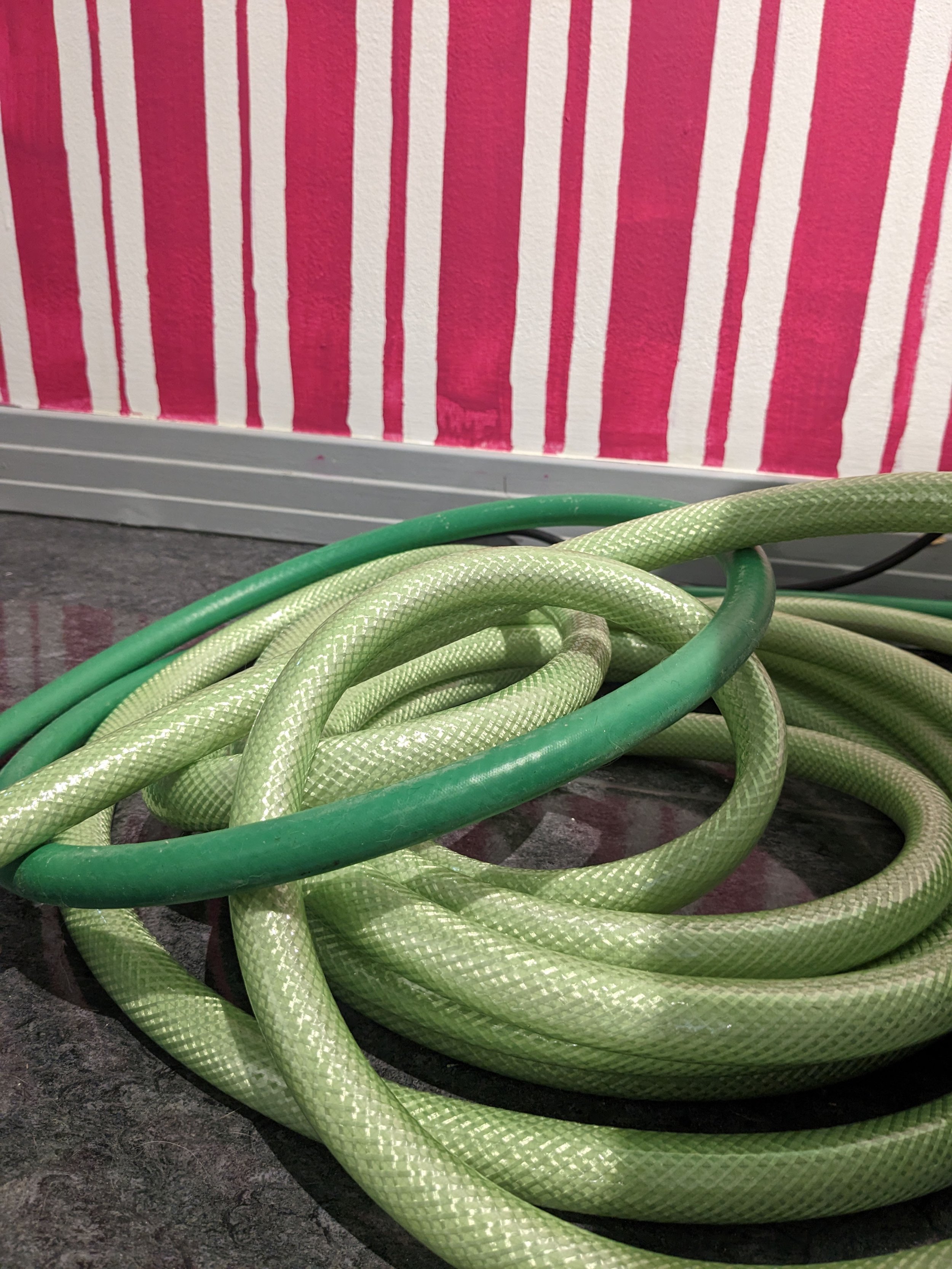
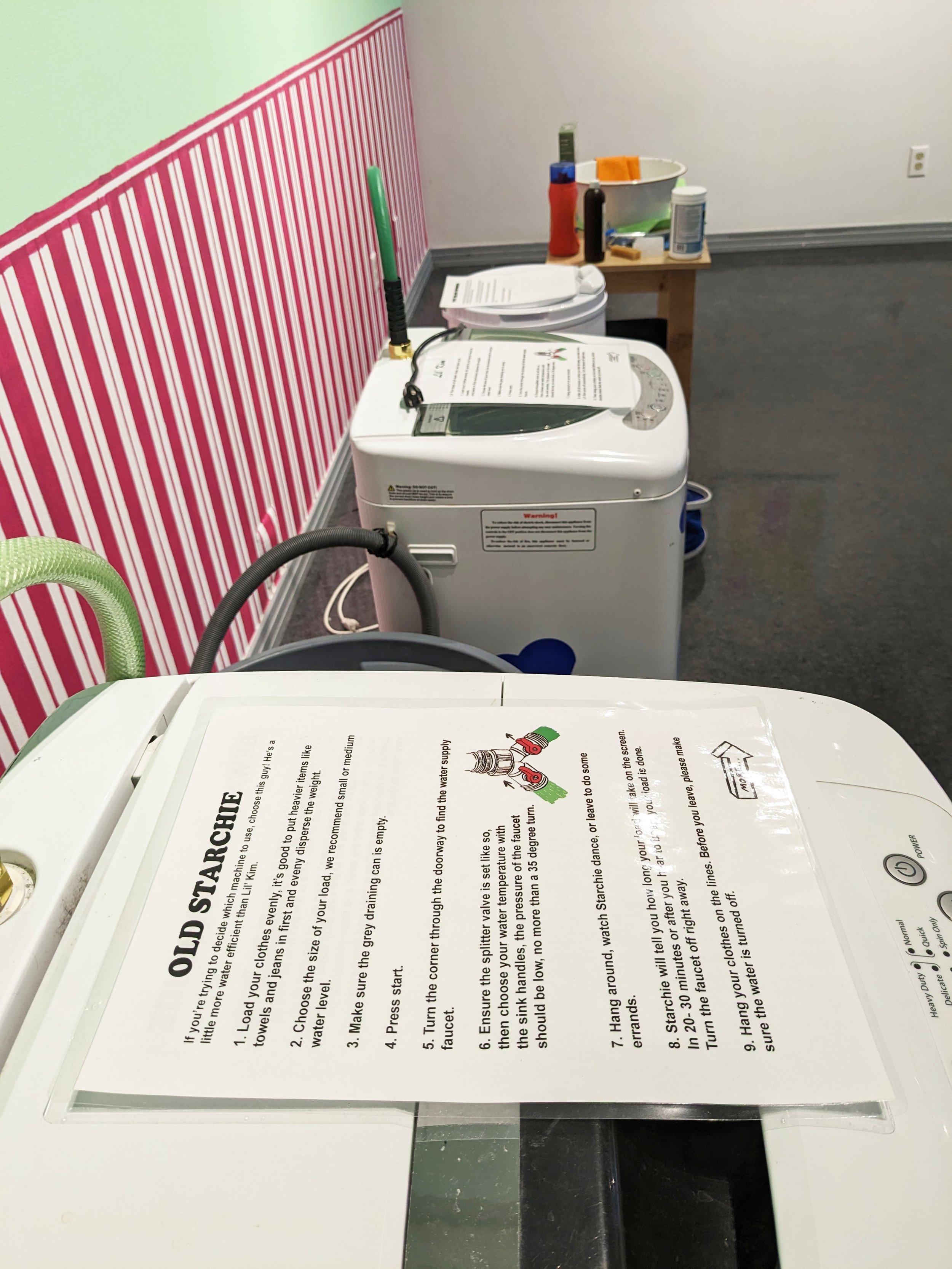


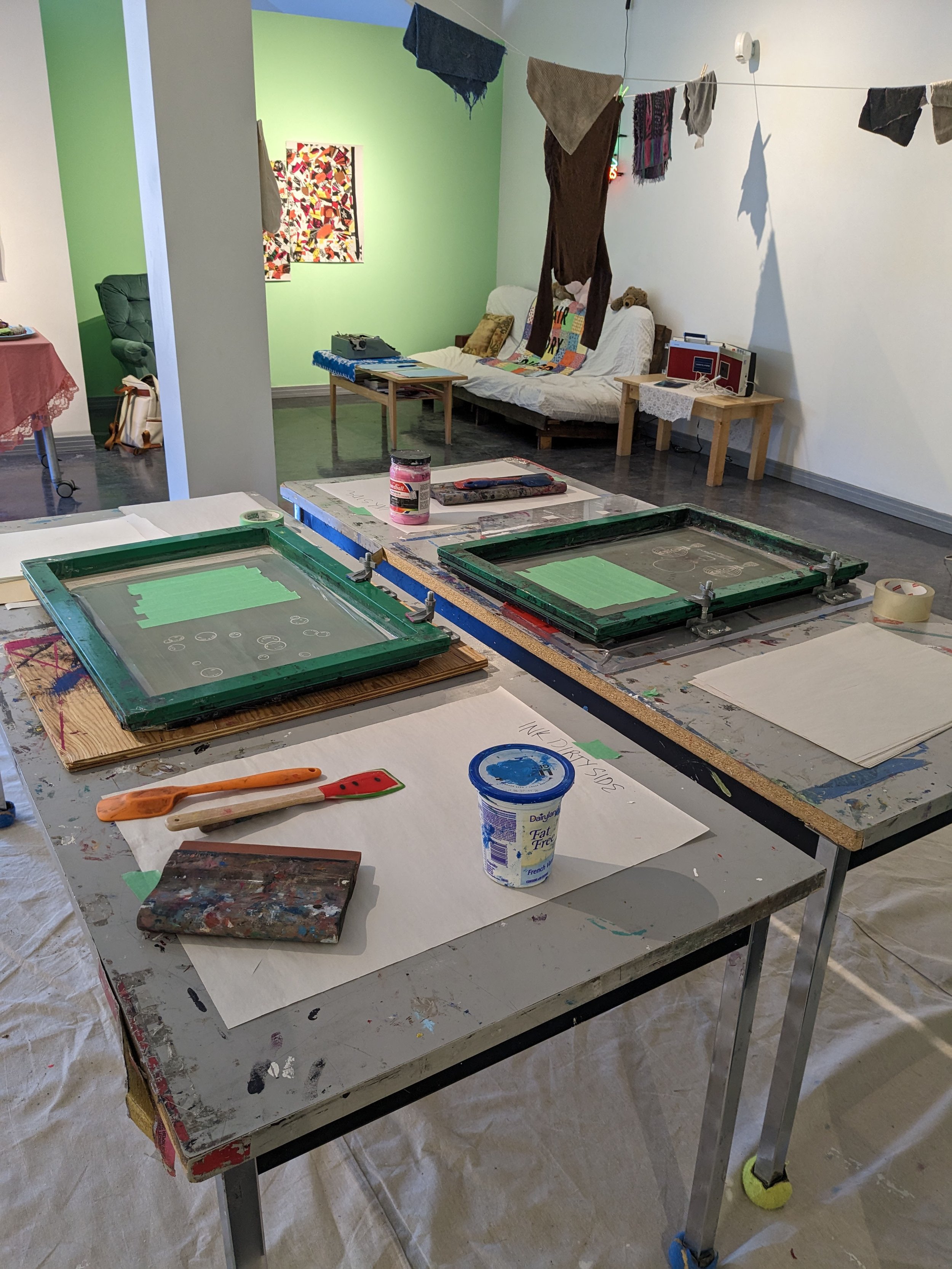
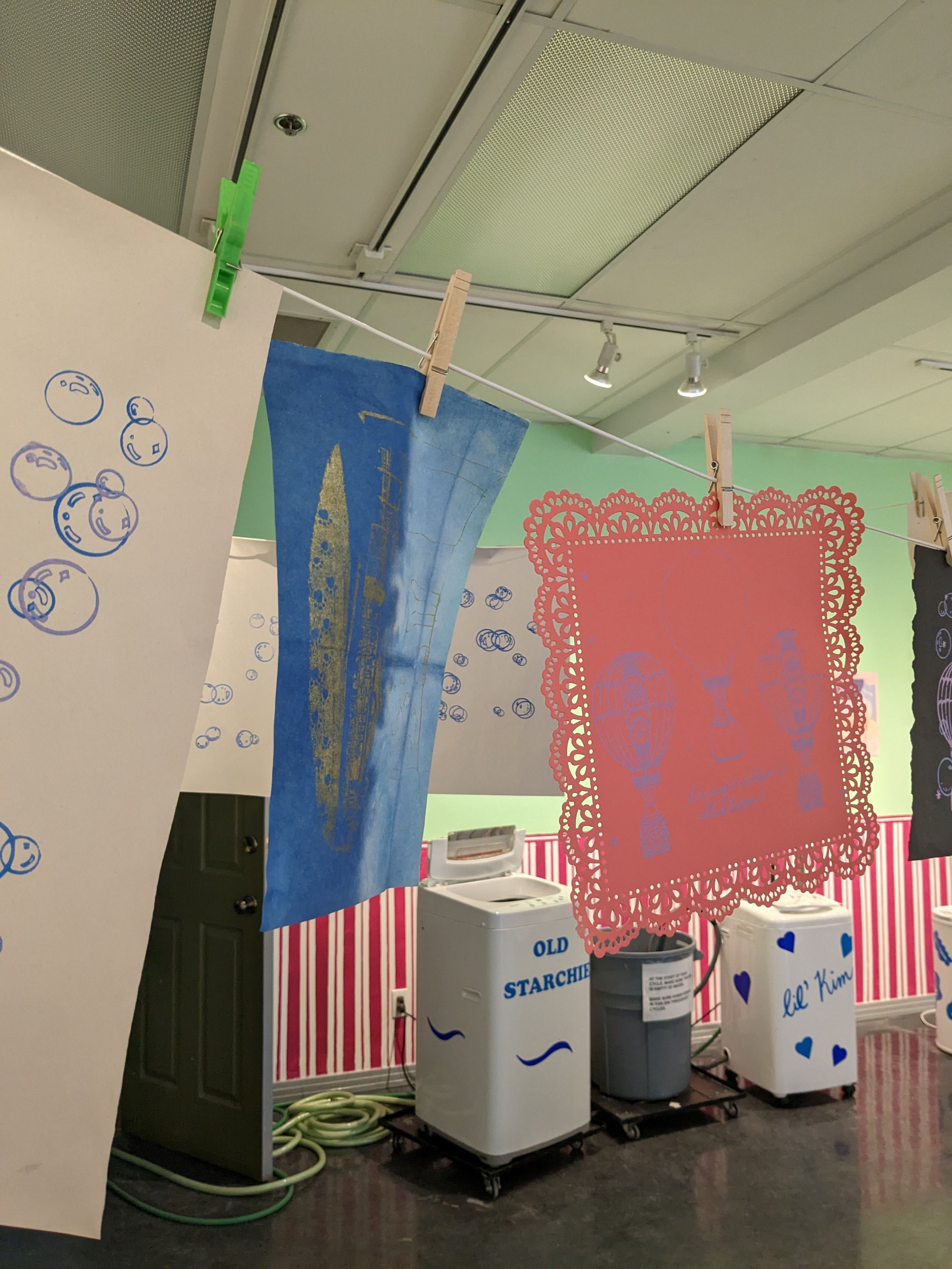
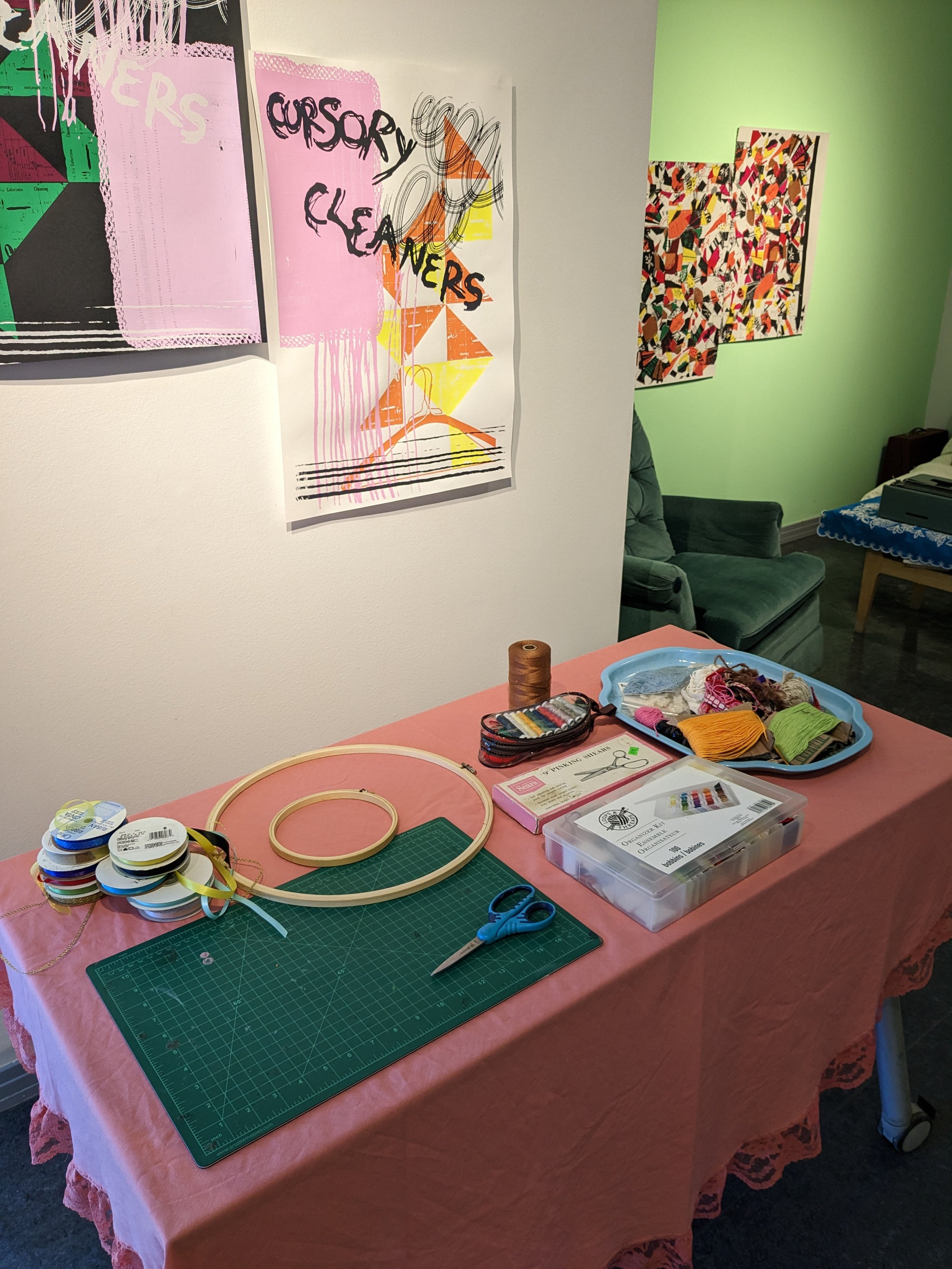


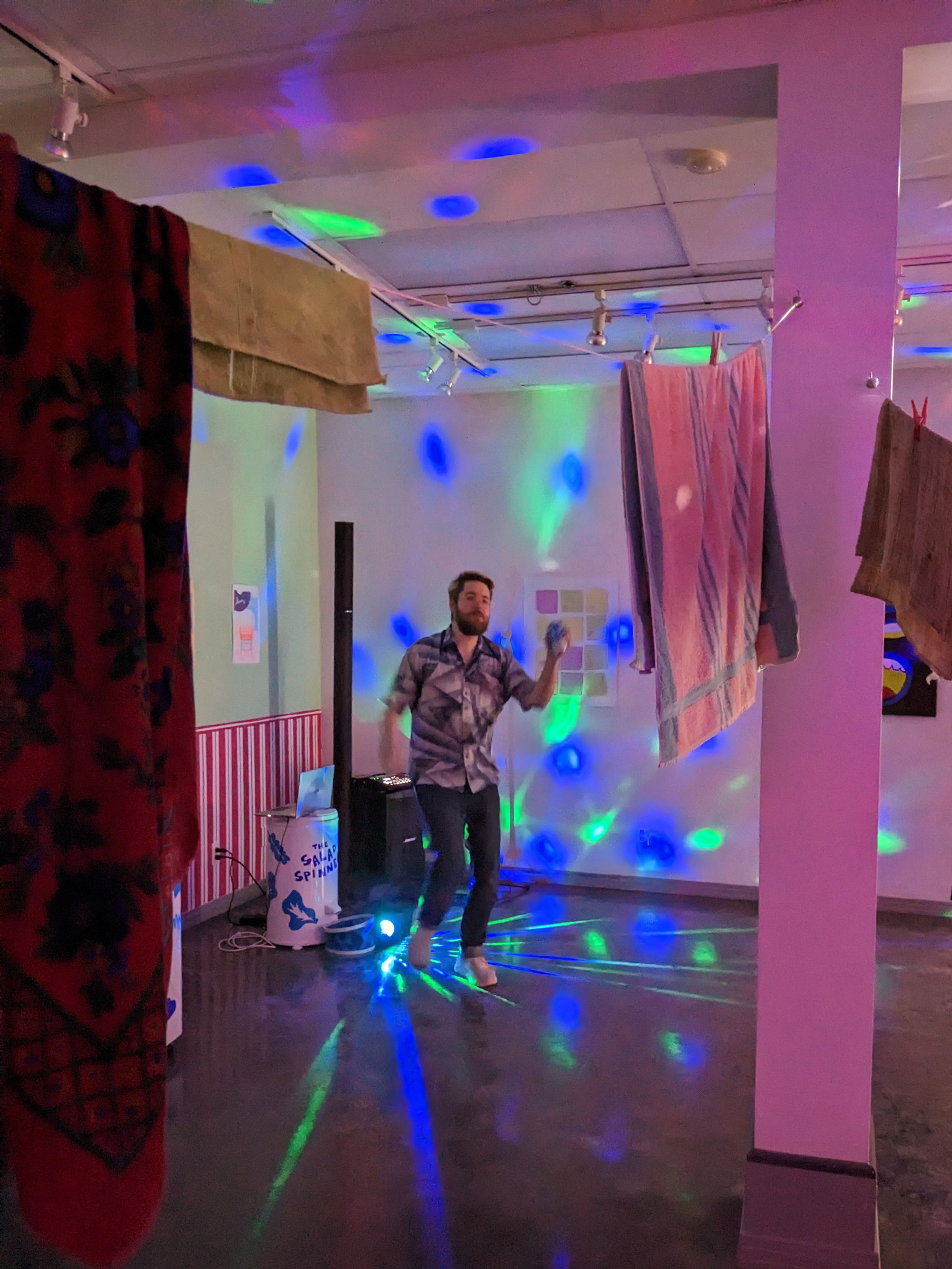

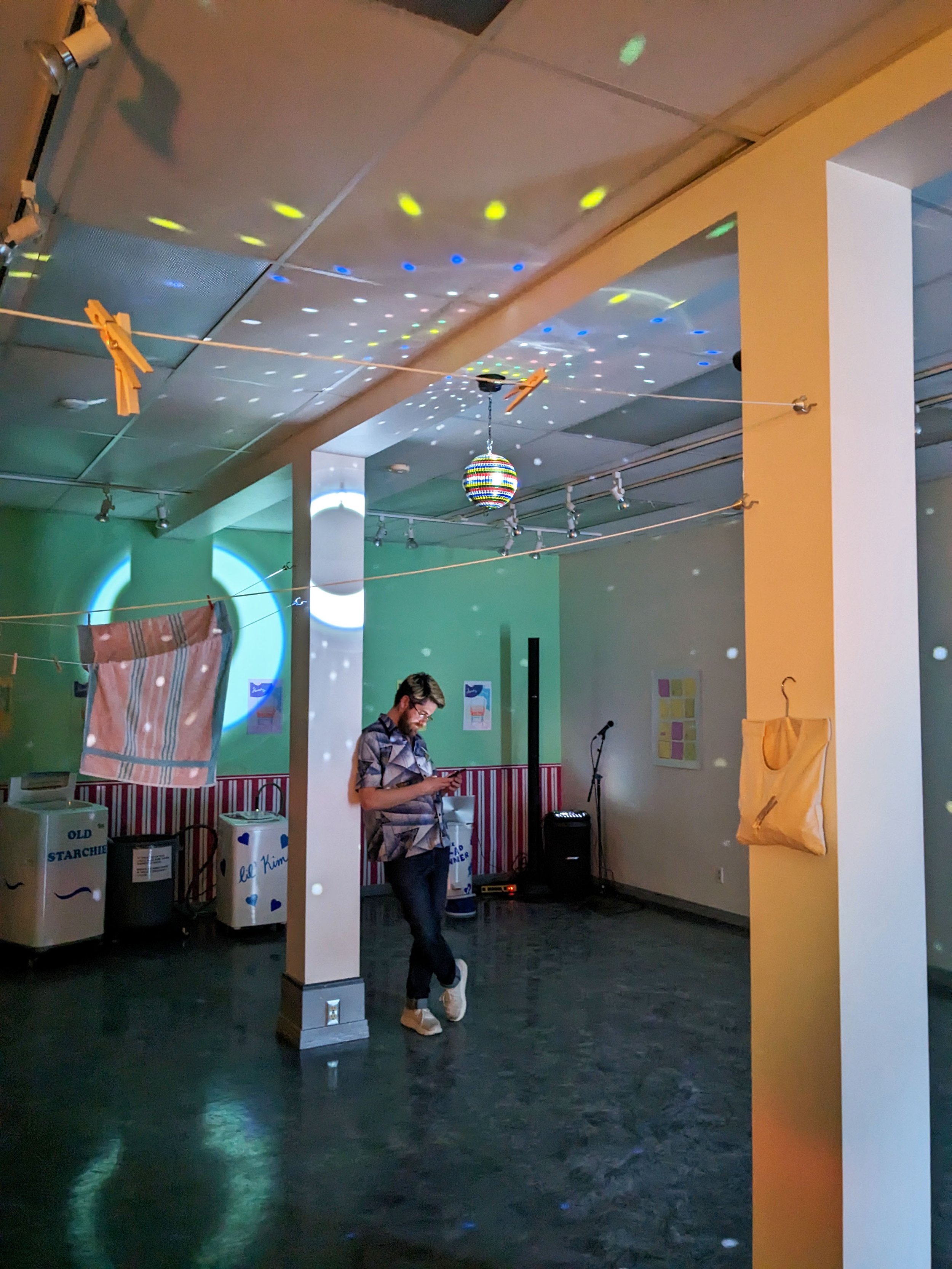
Link to article by Nicole Bauberger
Video by Cud Eastbound
